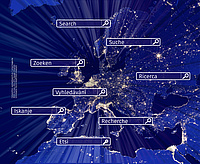
OpenWebSearch.EU - Piloting a Cooperative Open Web Search Infrastructure to Support Europe's Digital Sovereignty
This project will develop the core of a European Open Web Index (OWI) as a basis for a new Internet Search in Europe. In addition, the project will set the foundation for an open and extensible open Web Search and Analysis Infrastructure (OWSAI), based on Europe’s values, principles, legislation and standards. The CoDiS Lab team will focus on the design and integration of user-centered aspects and ethical values in the search technology, and will lead the creation of search applications that demonstrate both the open web search infrastructure and the human values.
- Funding: European Commission, Horizon Europe
- Duration: 01.09.2022 – 31.08.2025
- OpenWebSearch.EU Website [http://openwebsearch.eu/]
- Press Release
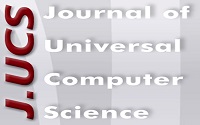
J.UCS - Journal of Universal Computer Science
Journal of Universal Computer Science (J.UCS) - is a high-quality electronic publication that deals with all aspects of computer science. J.UCS has been appearing monthly since 1995 and is thus one of the oldest electronic journals with uninterrupted publication since its foundation. Beginning with 2020, license has changed to the creative commons CC BY-ND 4.0 licens
- Funding: International Consortium
- Duration: 01.01.2012 - 31.12.2022
- J.UCS Website

LearnInf - Digital Skill Teaching
An introduction into programming is fundamental in computer science programmes at universities. Novices are often faced with new paradigms which can be hard when starting to code. A central goal of this project is to analyse this process in a first-year programming course in order to support and engage students and take countermeasures when problems in learning appear. This project is a cooperation between the psychology department of the University of Graz, the University College of Teacher Education and CoDiS Lab Graz.
- Funding: Internal
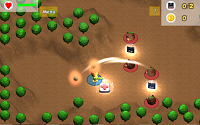
sCool - Video Game for Computational Skills
sCool is a motivating video game for teaching computational skills in a playful way. It consists of a concept-learning and a practical part. In the concept-learning part players explore a hostile planet, defeat enemies, and collect disks. In this way they learn basic concepts in computer science. The learned concepts are applied in the practical part by controlling a robot on a playing field using the Python programming language.
- Funding: Internal Funding
- Duration: 01.01.2018 - 31.12.2024
- sCool Website

LOOP Analytics – Object-oriented Cooding MOOC Learning Analytics
This research aims on motivation and learner behavior analytics as well as attrition and retentions prediction based on LOOP data, a MOOC about object-oriented programming. This research is conducted in collaboration with the Technical University Munich, TUM School of Education.
- Funding: internal funding
- Duration: 01.07.2020 - 31.12.2023
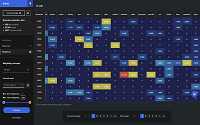
Infret - Interactive tool for exploring text statistics
The Infret project provides an exploratory and interactive visual environment for learning information retrieval concepts. The main idea of Infret is to provide an environment where students can explore, learn and visualise different IR concepts using real data. Currently, it supports various ways of exploring multiple text statistics and term weighting concepts. Infret was built and evaluated in collaboration with RMIT University in Melbourne.
- Funding: internal funding
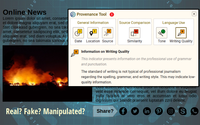
Provenance - Providing Verification Assistance for New Content
Disinformation and low-quality content undermine the digital ecosystem and contribute to the instability of societies across the world. To address this multifaceted problem, the Provenance project is developing a new verification-based warning system for disinformation. The aim is to improve the information environment by building immunity to low quality content while fostering values of trust and openness.
- Funding: European Commission, H.2020
- Duration: 01.12.2018 - 30.11.2021
- Provenance Website
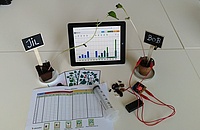
VISDAT - Visual Analytics for Promoting Digital and Scientific Literacy
The VISDAT project aims at stimulating school children’s interest and motivation in dealing with natural science topics and at supporting competence development in scientific and digital literacy. The core idea of the project is to pursue the application of basic data science in dealing with natural science research questions.
- Funding: Styrian Government
- Duration: 01.02.2019 - 31.01.2021
- VISDAT Website

AI 4 Reporters - create AI-driven Wire Service for Statehouse Coverage
In this research the aim is to build a prototype news wire service where narrative content covering state legislatures is automatically generated from primary data sources, and can be distributed to local and regional news organizations for publication. This research is conducted in collaboration with Cal Poly Institute for Advanced Technology and Public Policy and University of Miami School of Communications.
- Funding: mixed funding
- Duration: 01.02.2020 - 30.12.2021
- AI 4 Reporters Website
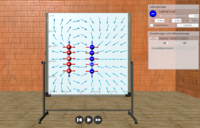
Phantom3D - VR Experiments and Assessment for Students
The Phantom3D project is dedicated to increased engagement and deeper understanding in large-scale physics courses; in collaboration with the GEAR Group from ISDS and the Institute of Solid State Physics. It combines the highly immersive physics laboratory Maroon with the flexible assessment and guidance system Antares. The main idea is that students improve their understanding of three-dimensional physics problems through virtual experiments and receive immediate feedback, providing support and continuous motivation.
- Funding: TU Graz
- Duration: 01.06.2019 - 30.06.2020
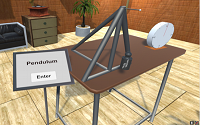
VRSchool - VR Experiences for Schools
VR learning environment for learning and better understanding physics concepts (mechanics, electrostatic and dynamic phenomena) for secondary schools and technical colleges in Austria. Learning experiences are based on Maroon, in collaboration with the GEAR Group from ISDS.
- Funding: BMBWF
- Duration: 01.10.2018 - 30.06.2020
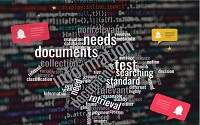
CERN Push Notification System - Information Retrieval in Multidimensional Information Space for Push Notification Systems
This research collaboration with CERN and Graz University of Technology aims to understand the informational need of users in large organizations, discover novel ways of retrieving important information from large datasets, and visualize information to users in an easily understandable format.
- Funding: Mixed Funding
- Duration: 01.08.2020 - 31.07.2023
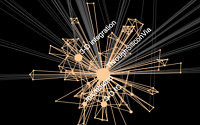
Collaboration Spotting - Knowledge Graph based Information Retrieval
Knowledge Graph Approaches for Information Retrieval and Exploration based on NPL, retrieval and information visualization for various application domains. This research collaboration with CERN and University Graz focuses on information search and retrieval, information visualization and usability.
- Funding: Mixed Funding
- Duration: 01.08.2020 - 31.07.2023
- Collaboration Spotting Website
- CoDiS Overview
- Projects
- Team
- Awards
Gütl, Christian, Assoc.Prof. Dipl.-Ing. Dr.techn.
+43 (316) 873 - 5604
c.guetl@tugraz.at
